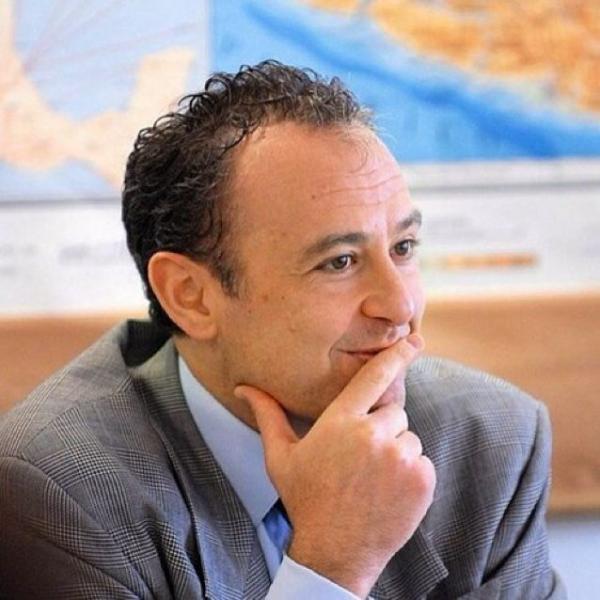A Week With Ambassador Arturo Sarukhán

Sarukhán has served as a career diplomat in the Mexican Foreign Service for over twenty years and was appointed ambassador to the U.S. in 2006 by President Felipe Calderón. Serving until 2013, he became the youngest and longest serving Mexican ambassador in Washington in recent history. He is currently serving as Chairman of Global Solution/A Podesta Company, a strategic consulting firm in Washington, D.C.
Digital Diplomacy
Ambassador Sarukhán is credited for being the first diplomat in Washington to tweet. Although most world leaders use twitter mainly during election campaigns, it is increasingly being seen as an effective way for government leaders to connect with the younger generation regarding variety of issues. For Sarukhán, digital/social media have played an important role in "challenging traditional media's misrepresentations." He believes that these tools provide government officials with a forum to correct narratives, put out their opinions, and shape perceptions.
Back in April, Sarukhán wrote that, "digital diplomacy and the use of social media are not substitutes for sound policy or policy design and implementation. No savvy use of technology can sugarcoat bad policy or poor public diplomacy." Nonetheless, he stresses the importance of acting in "real-time" to communicate the quality and accuracy of information, especially ones that deal with controversial issues.
Immigration
Public perception plays an important role on how difficult issues are viewed between the two countries. Sarukhán explained that Mexicans see the issue of immigration in the context of fairness while Americans see it in the context of rule of law. These distinct perceptions lead to different languages and frameworks. For example, the 2010 Arizona immigration enforcement laws, which added new state requirements, crimes and penalties, significantly deteriorated the perception of U.S. in Mexico. This is also due to the fact that most Mexicans do not differentiate between state level and federal level policy.
Transnational Crime
The relationship between the U.S. and Mexico has been complicated by the ongoing transnational organized crime between the two countries. Sarukhán mentioned the importance of looking at the issue from both the angles of supply and demand.
While the U.S. perception is that insecure borders are letting an influx of drugs into the country, Mexicans see the bulk cash entering their country from the U.S. as the catalyst for violence in the country. Sarukhán referred to the media's tendency to either oversimplify the issue of transnational organized crime or exaggerate it without paying attention to nuances. For example, the media has portrayed single incidences in specific areas in Mexico as if they are happening all over the country, threatening visitors and drastically changing foreign publics' perception of Mexico.
Trade
Sarukhán highlighted the 1994 North American Free Trade Agreement (NAFTA) as one of the most important factors that expanded the relations between the two countries. The trade agreement, signed by Canada, Mexico, and the United States, has created the world's largest trade area linking 450 million people and producing $17 trillion worth of goods and services. Sarukhán added that today Mexico buys more U.S. goods than all of Latin American countries combined, as well as more goods than all of BRIC (Brazil, Russia, India, China) nations combined. According to the ambassador, NAFTA dramatically changed the way both governments interact with each other, forcing Mexico to change its foreign policy dynamics in a positive way. Responding to critics of NAFTA who point to the fact that the trade agreement has not decreased poverty in Mexico, Sarukhán stated that he agreed, however, the mechanism of the agreement was designed to boost trade agreement between Mexico and the U.S. and is not a poverty alienation program.
Sarukhán's visit coincided with the announcement of the Global Cities Economic Partnership between Chicago and Mexico City by mayors Raihm Emanuel and Miguel Ángel Mancera. The partnership is meant to strengthen the relationship between the two cities and expand job growth and economic opportunities for both. The ambassador believes that the two countries are at the height of their relationships, mostly due to successful economic and security cooperation.
The grandson of refugees who fled Ottoman Turkey during the Armenian Genocide, Ambassador Sarukhan has earned a B.A. in International Relations from El Colegio de México and an M.A. in U.S. Foreign Policy from the School of Advanced International Studies (SAIS) of Johns Hopkins University, where he was a Fulbright Scholar and Ford Foundation Fellow. He is the USC Center on Public Diplomacy Distinguished Visiting Scholar for the 2013-14 academic year.
Reach Executive Producer Syuzanna Petrosyan here. Follow her on Twitter.



